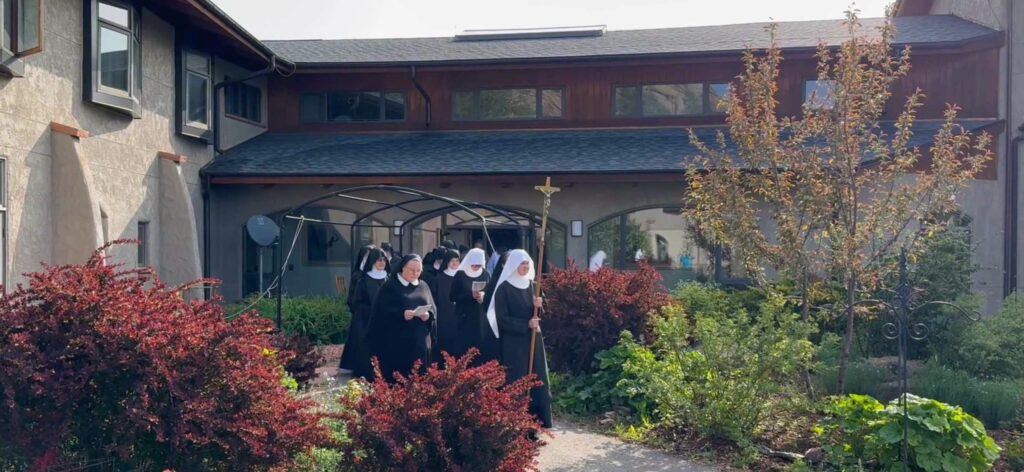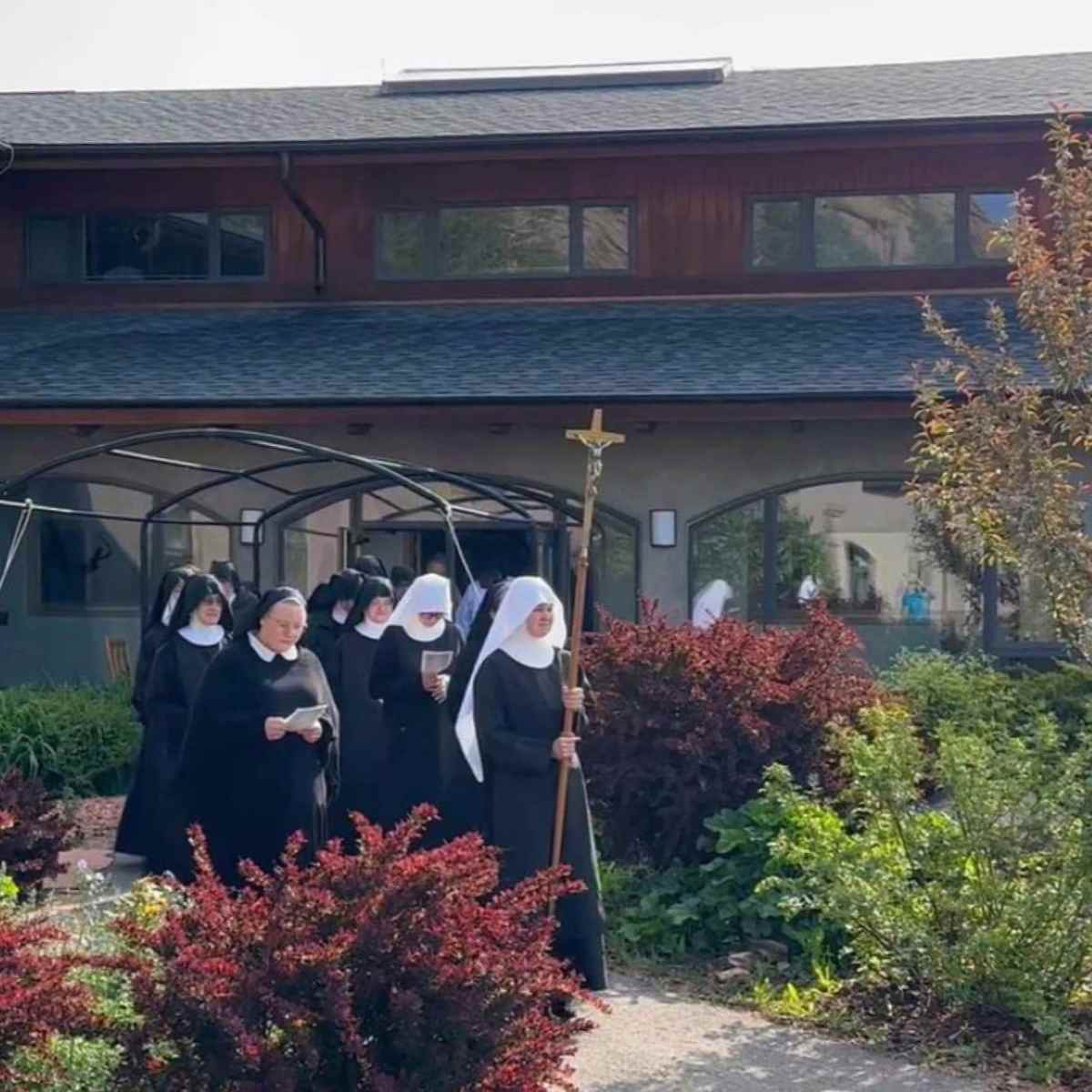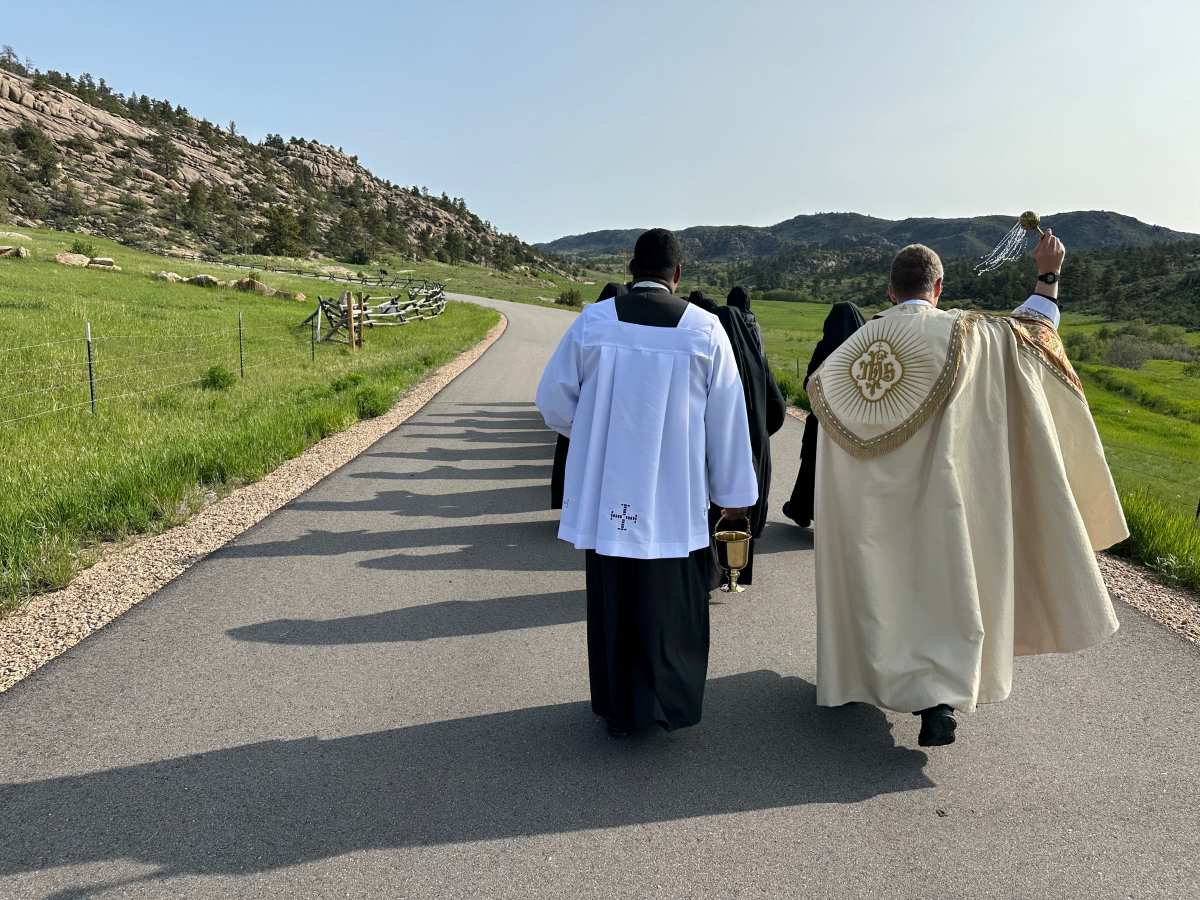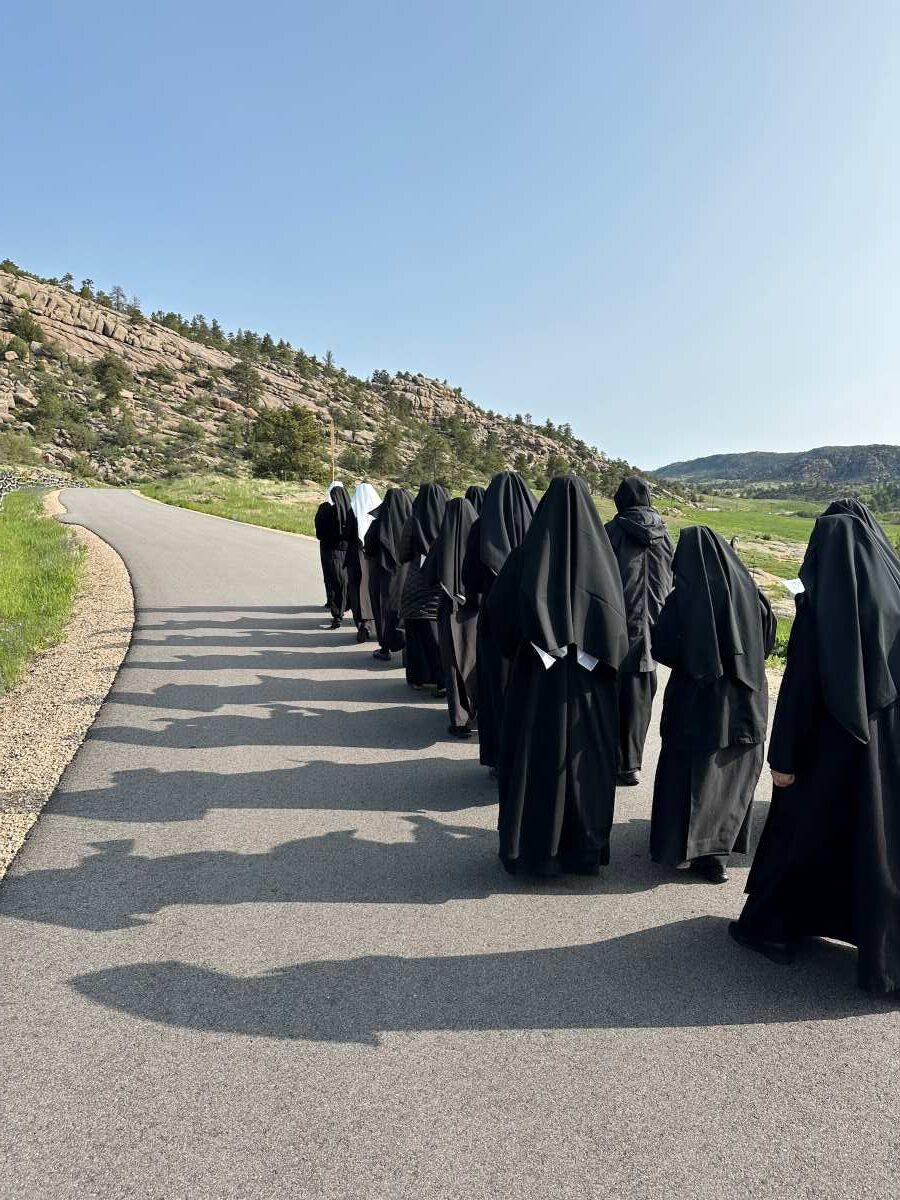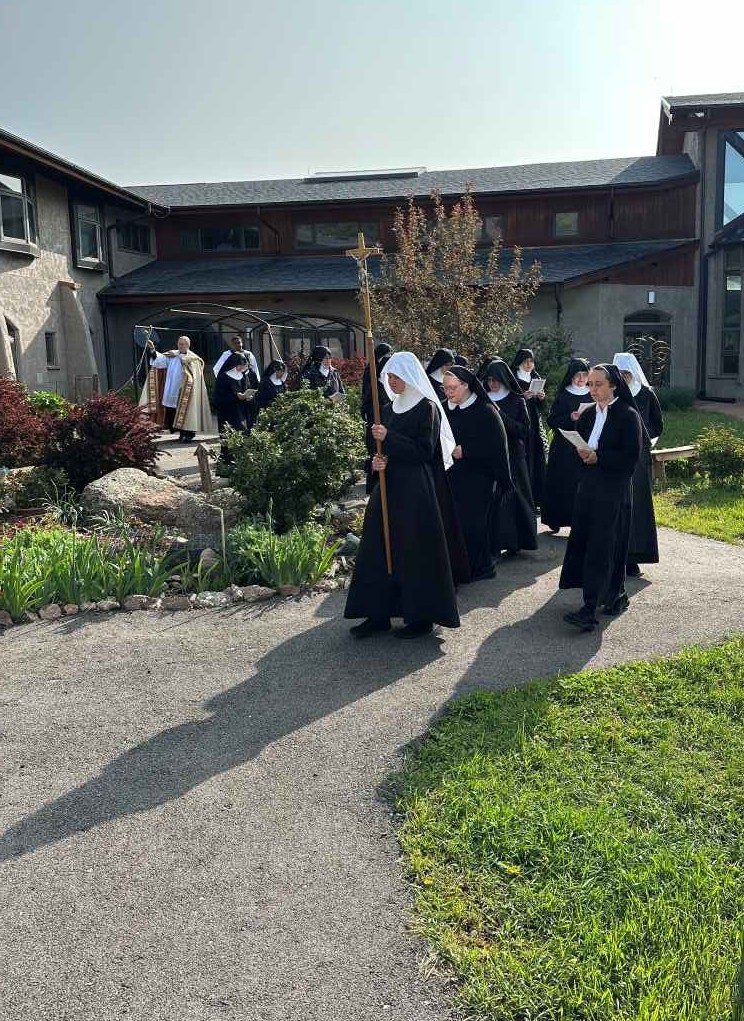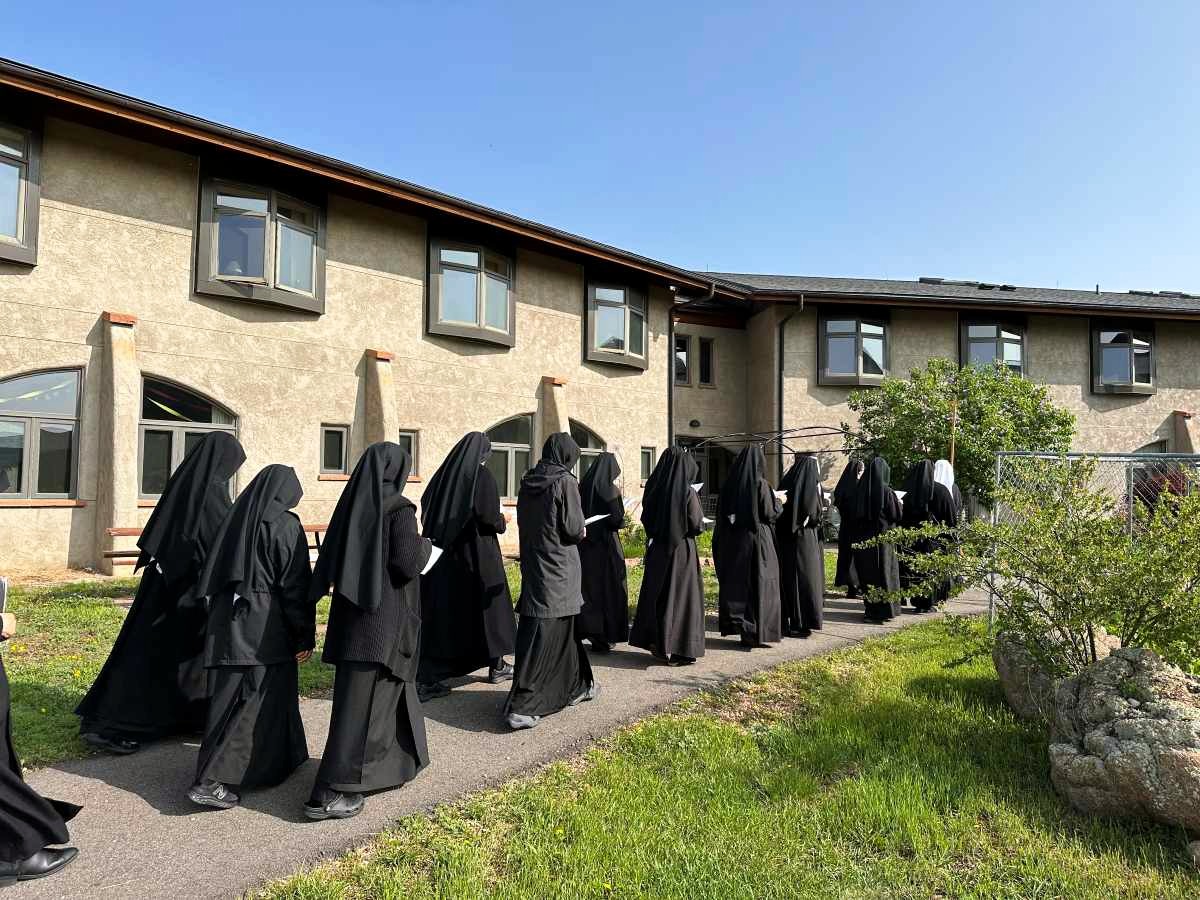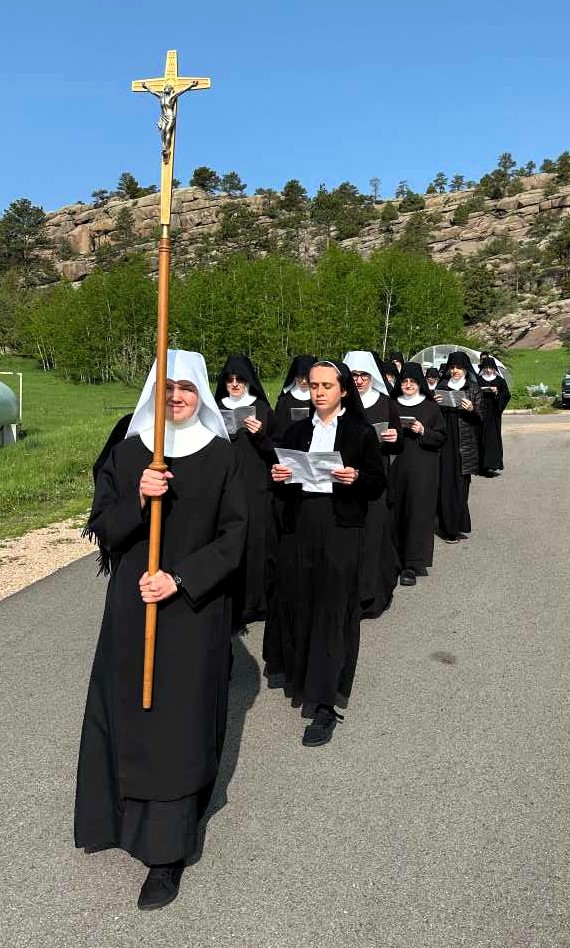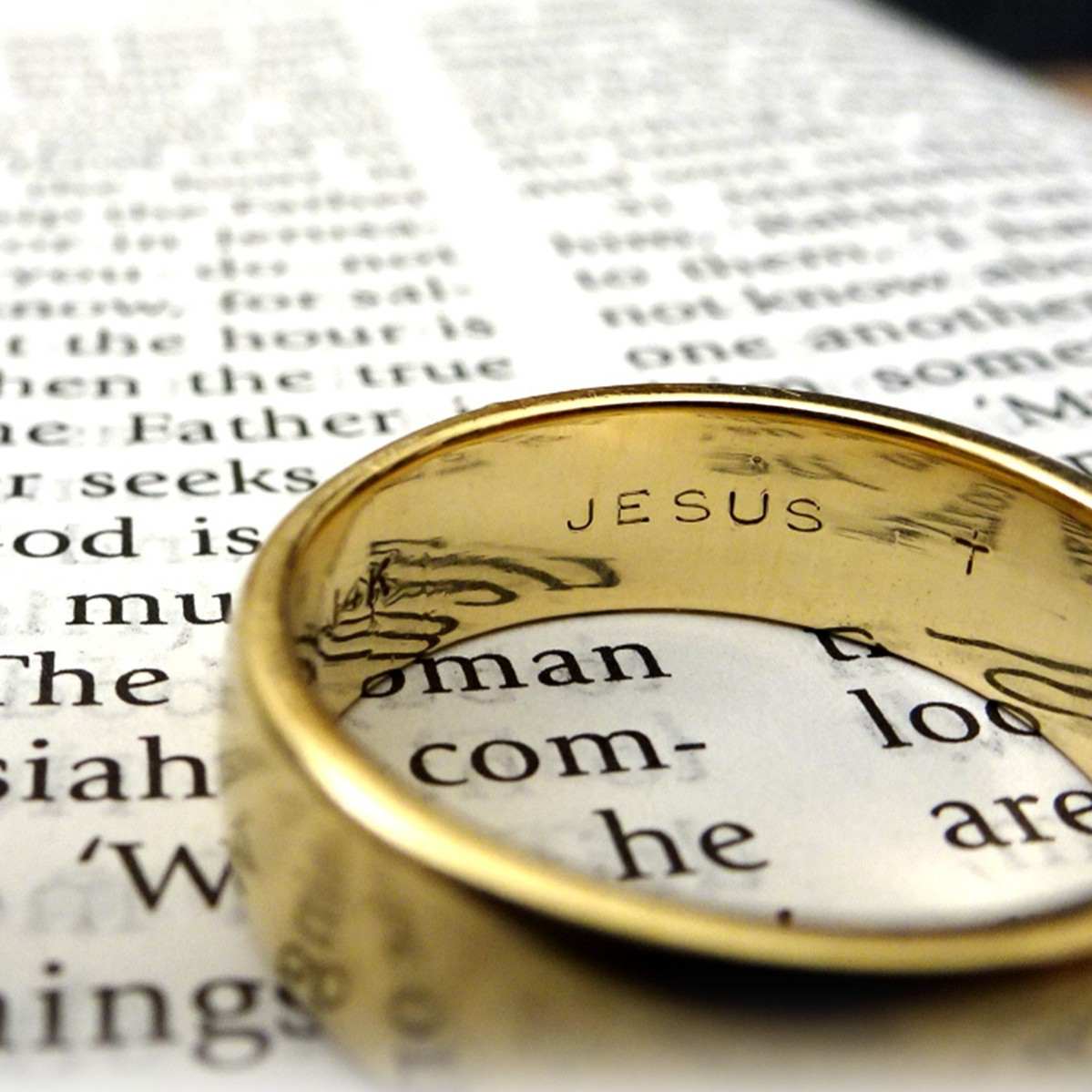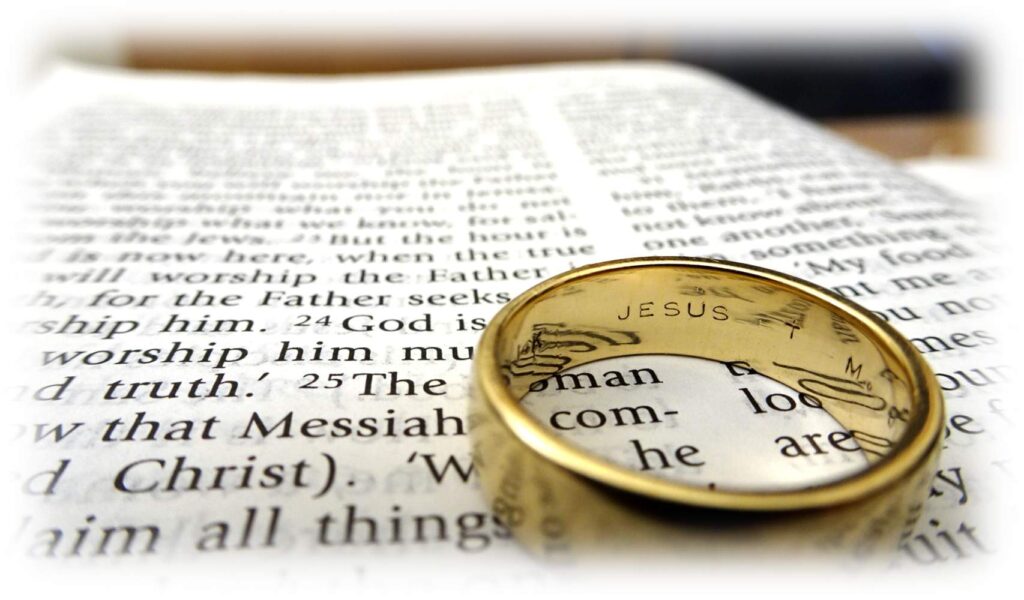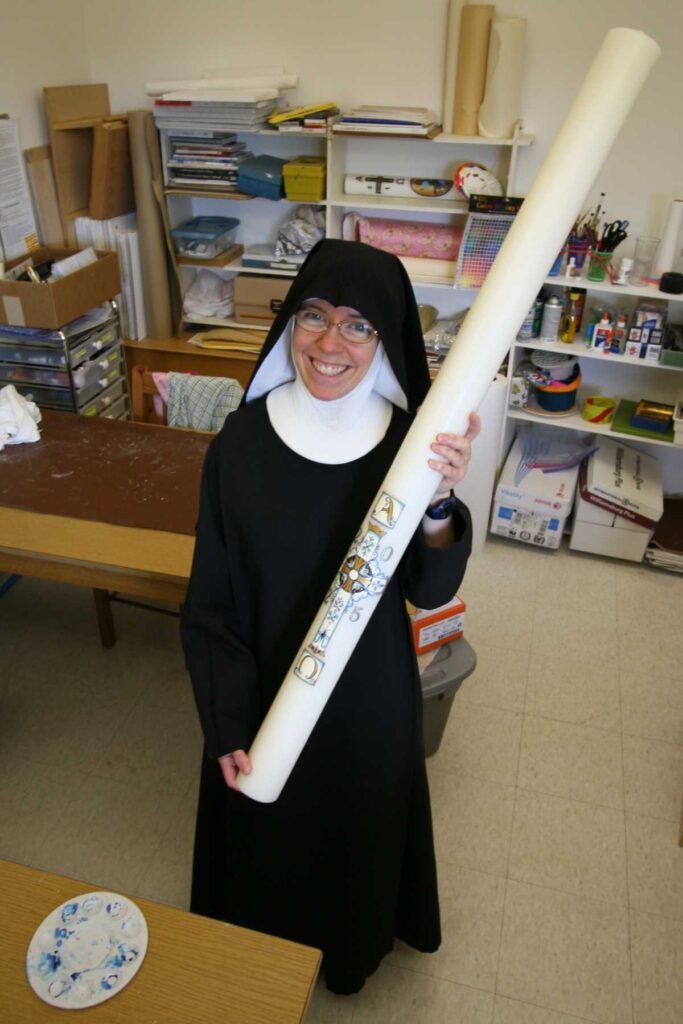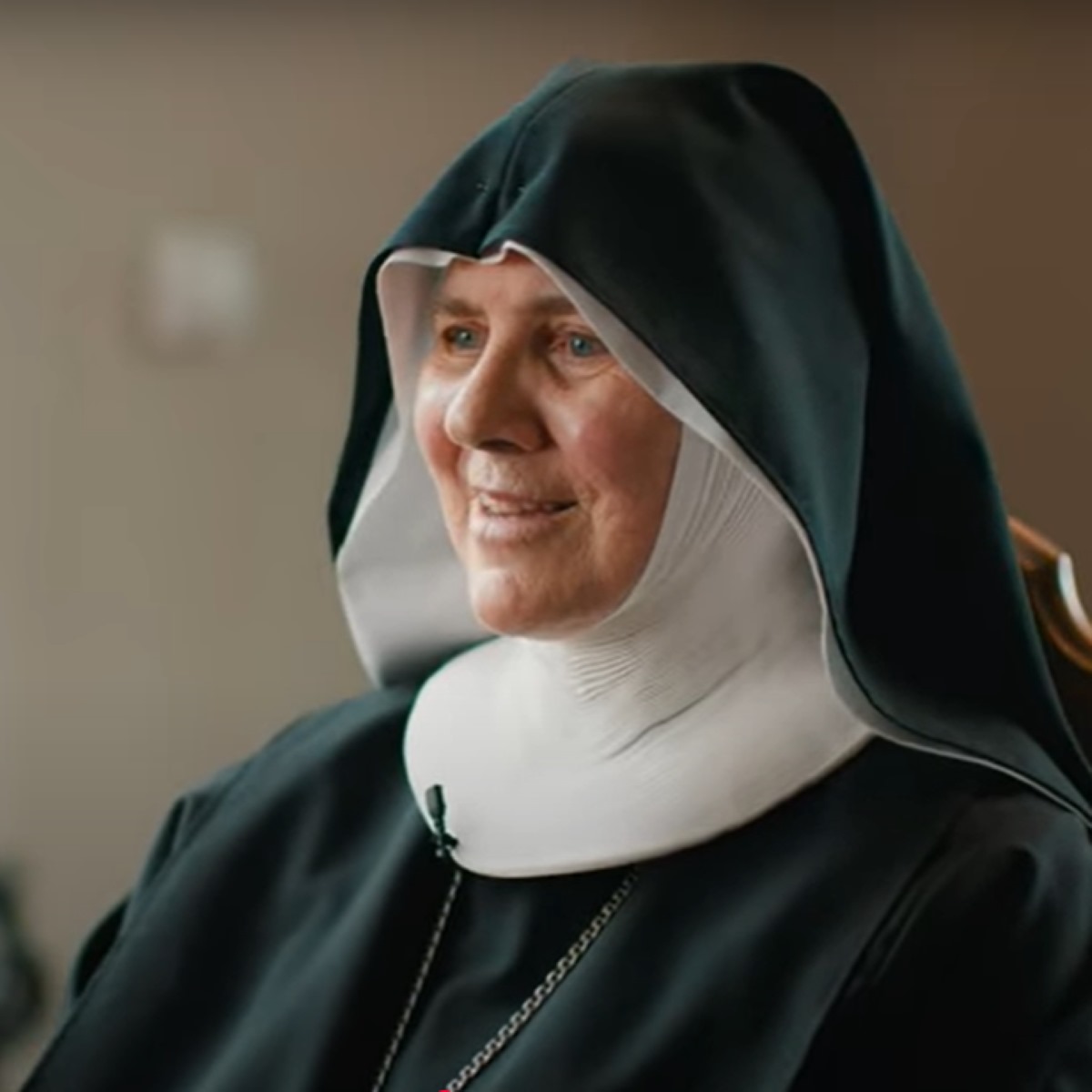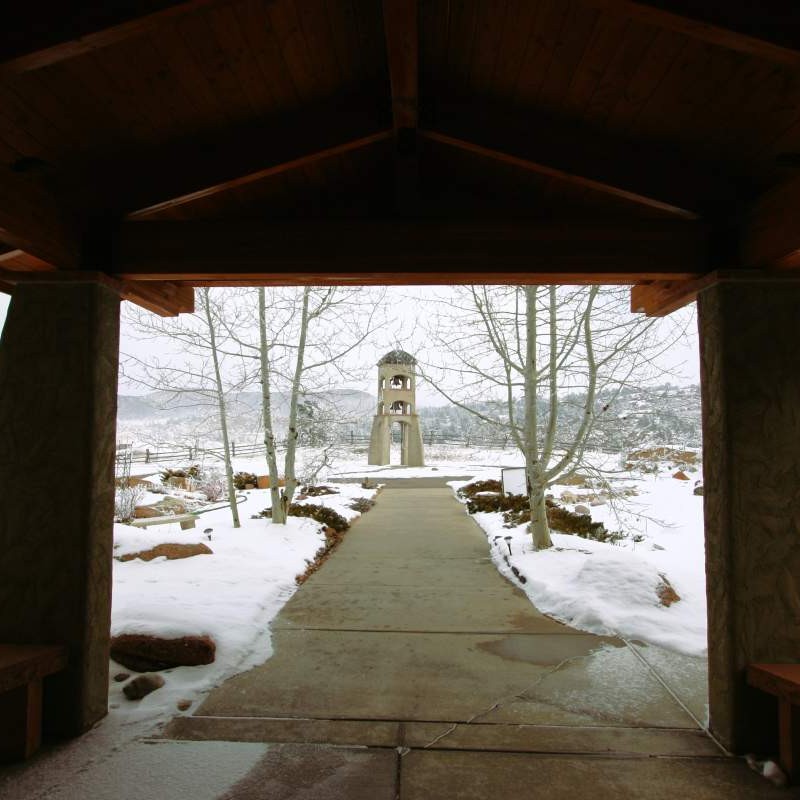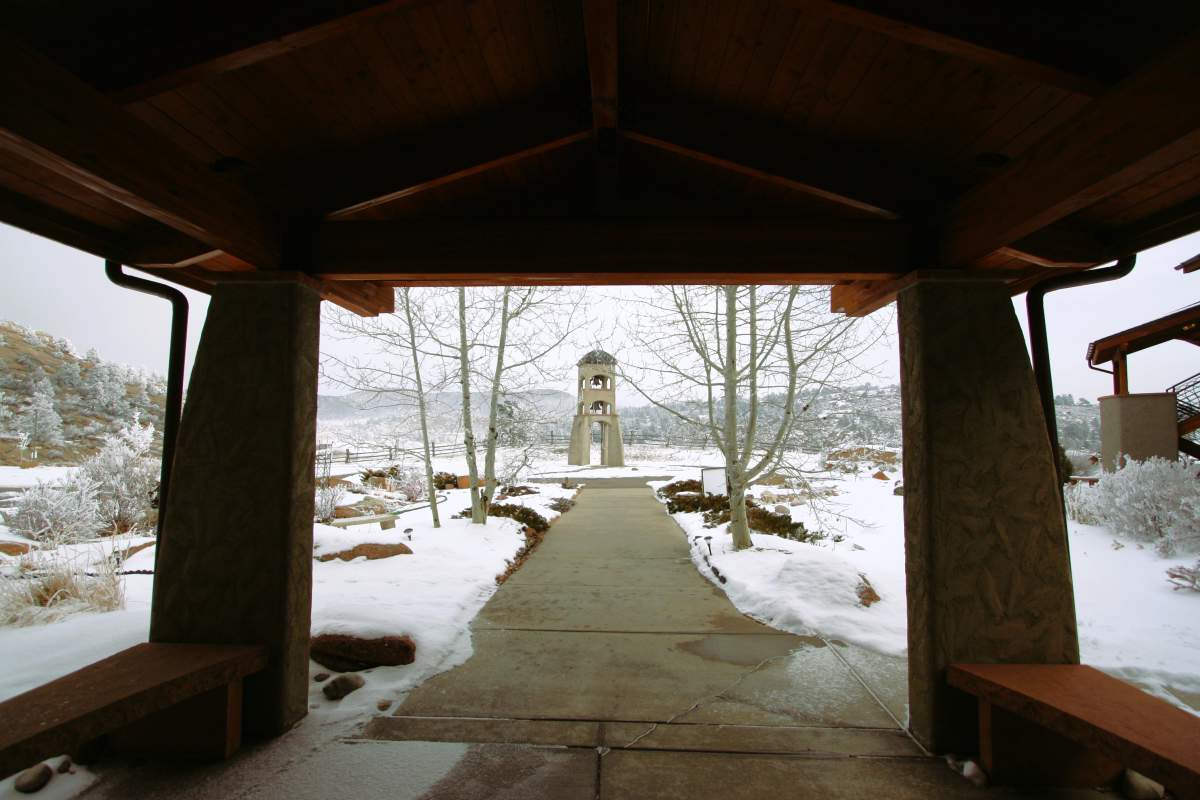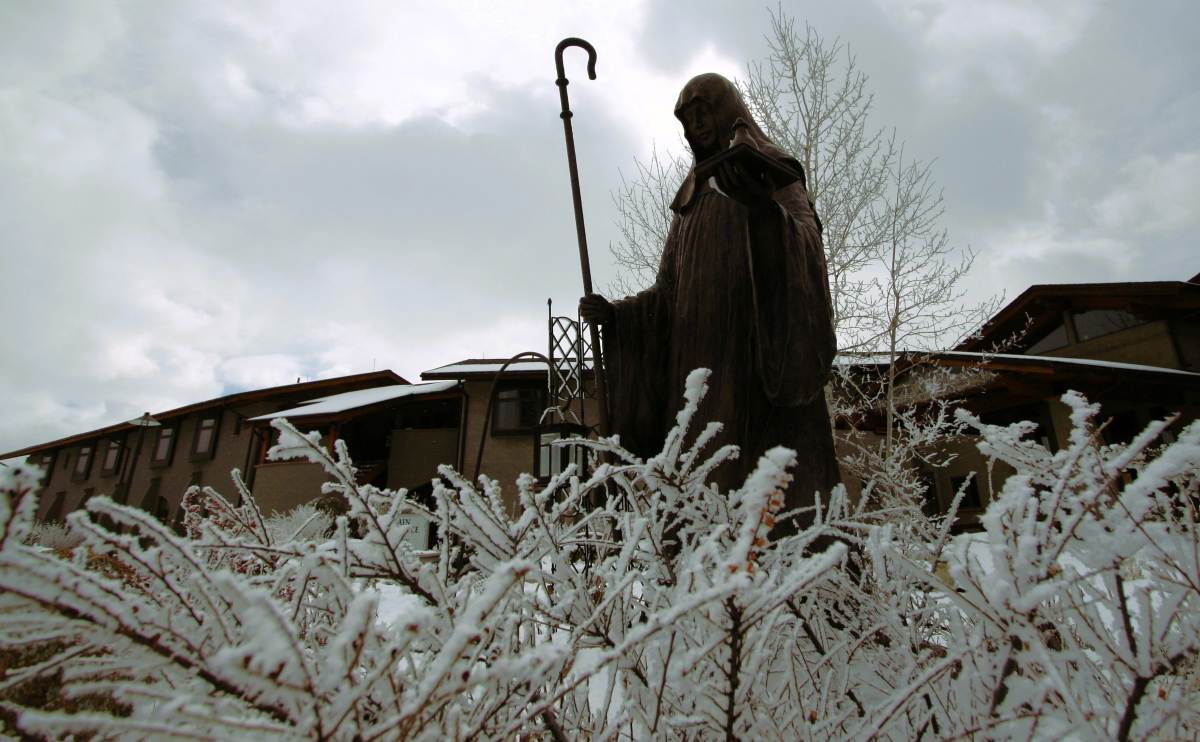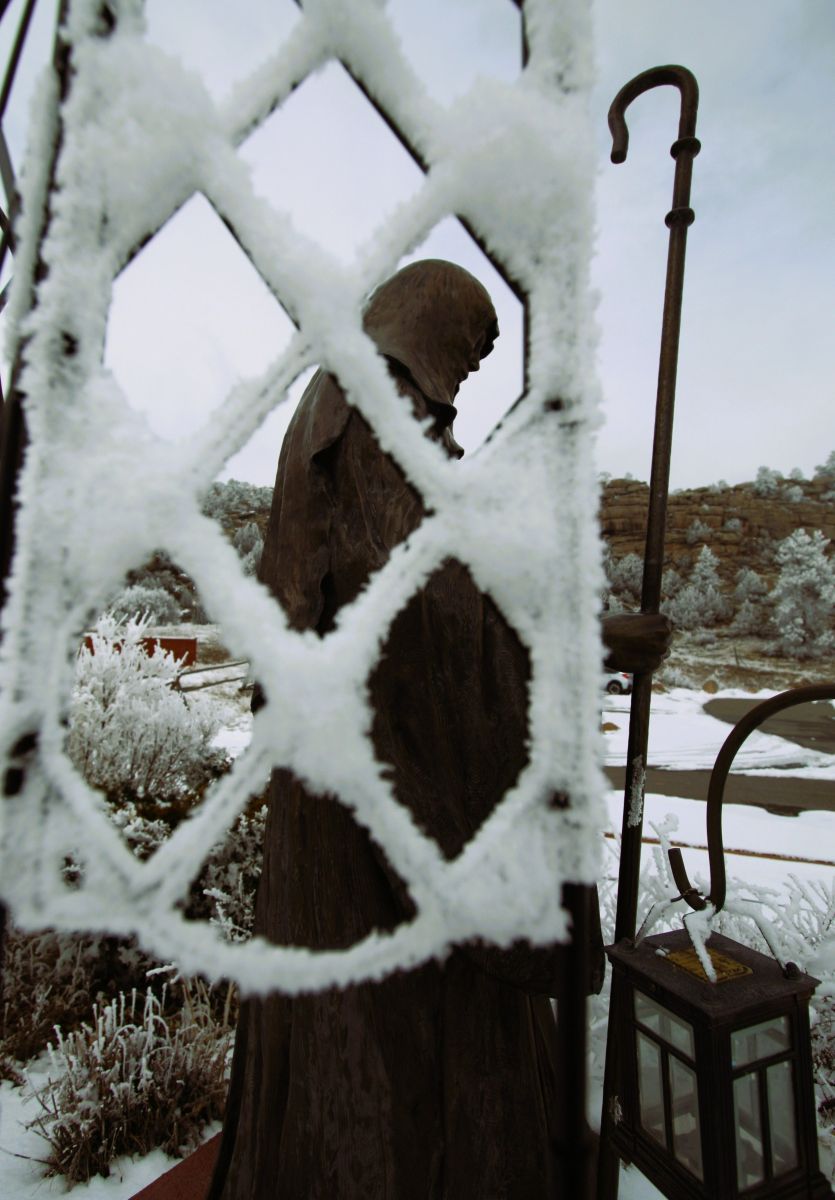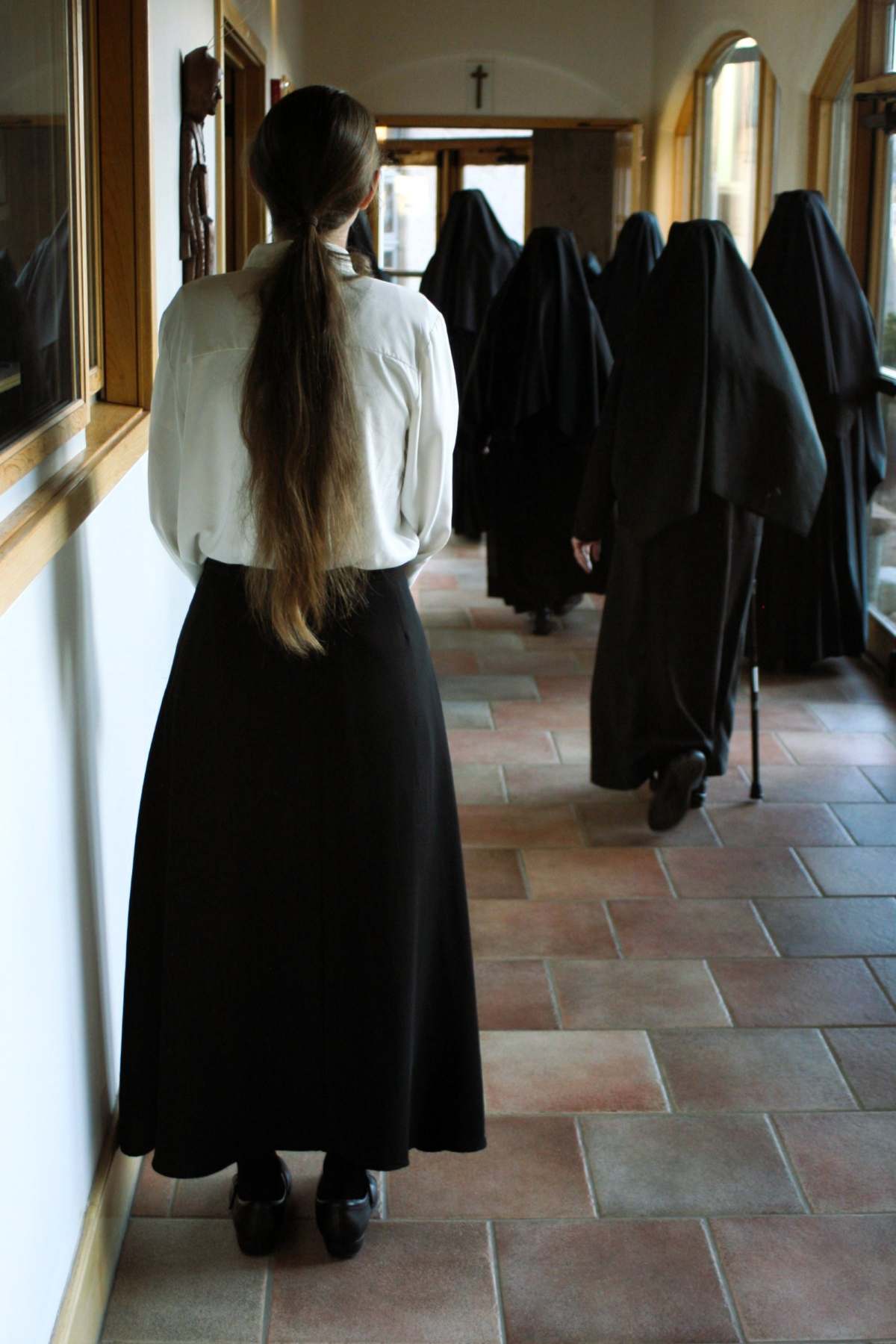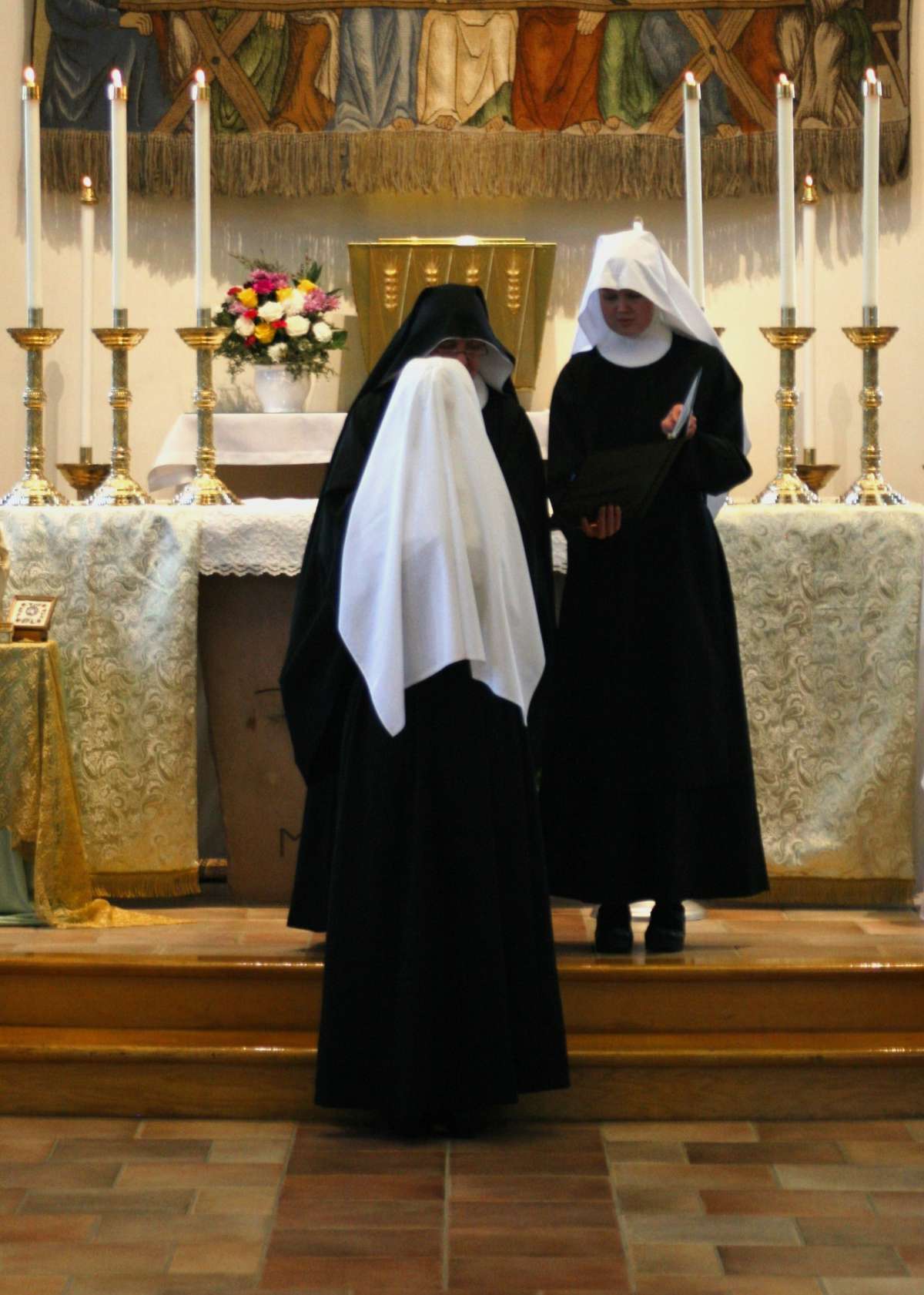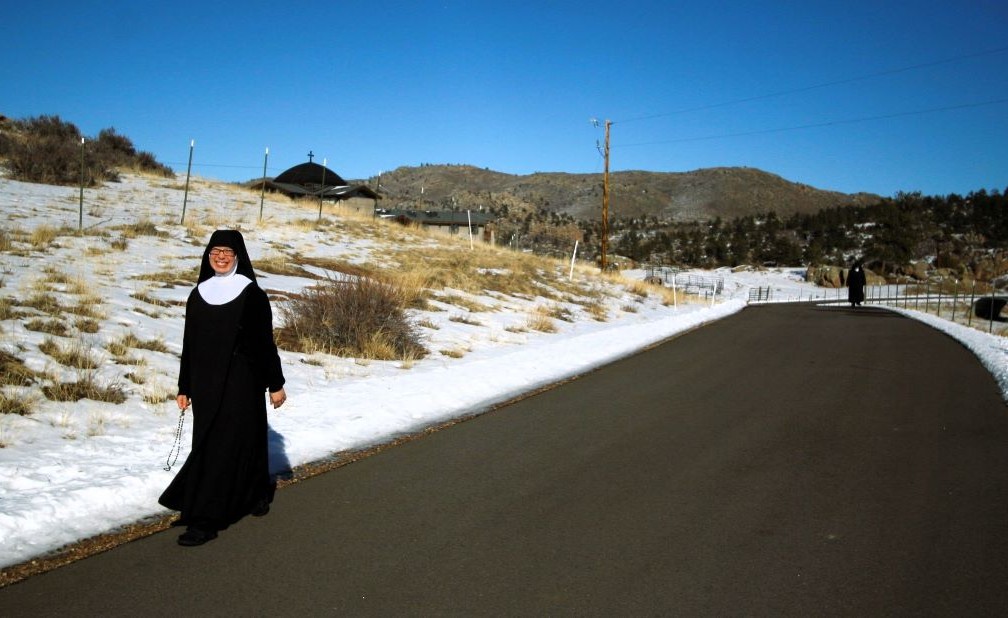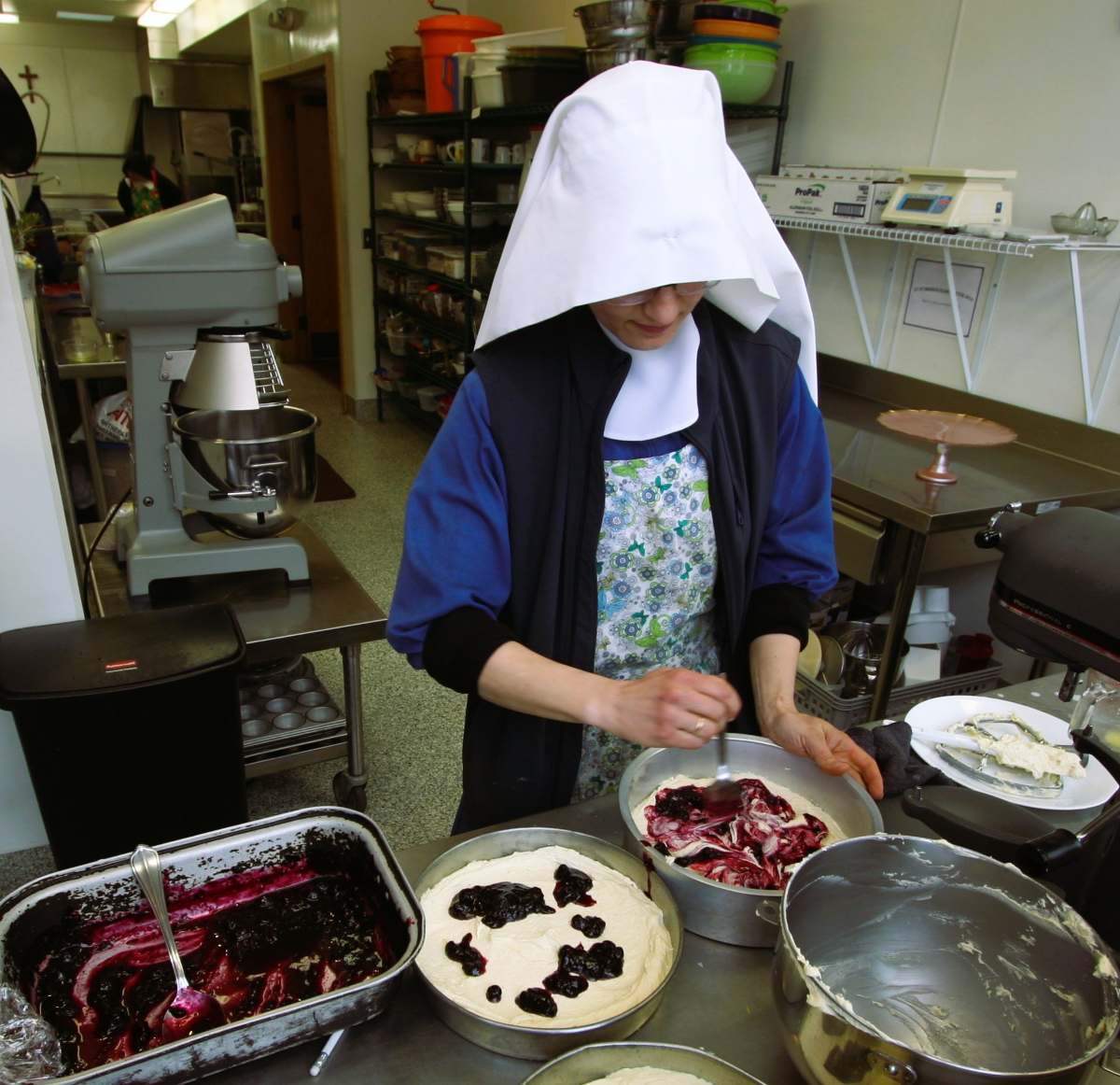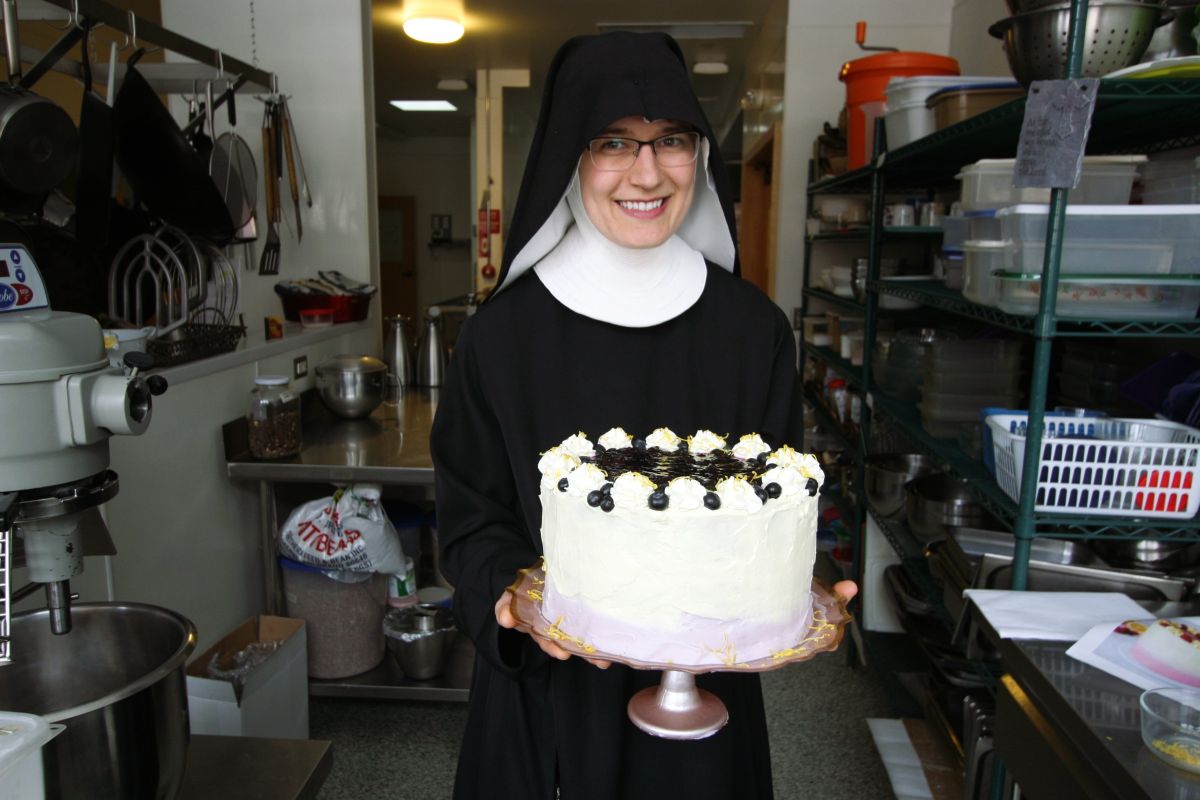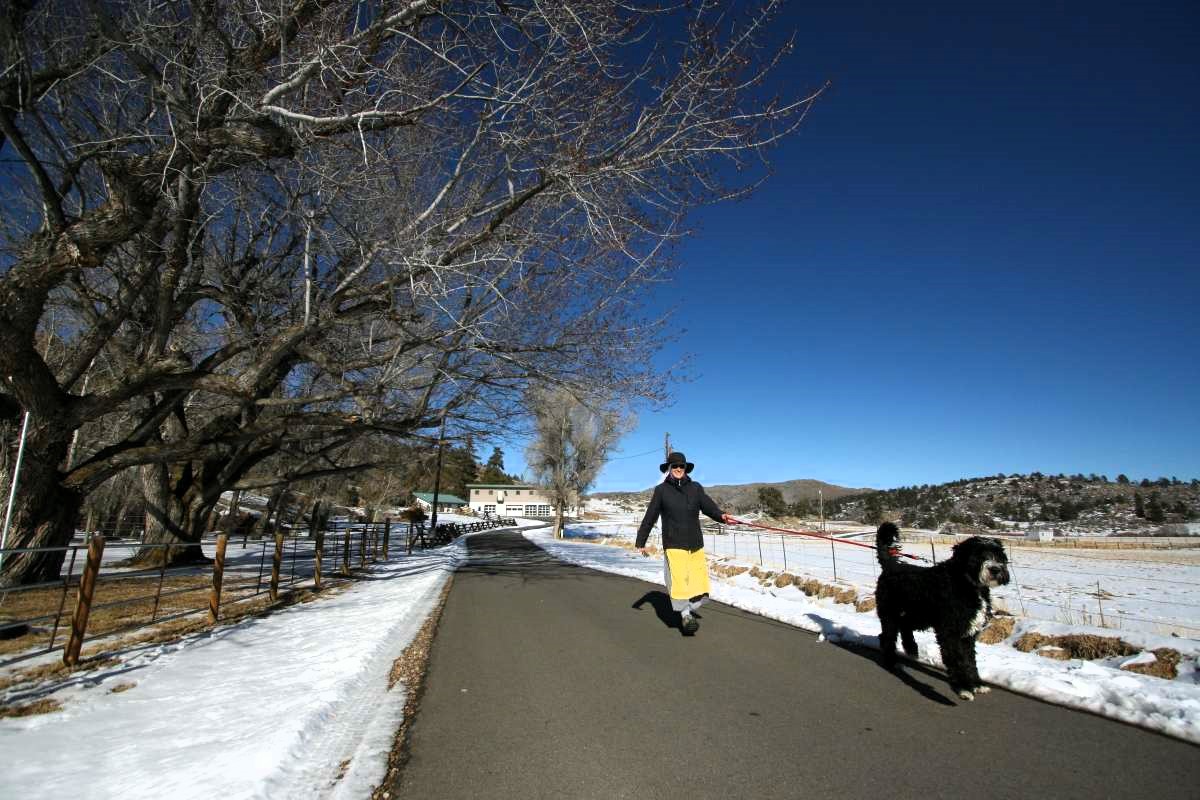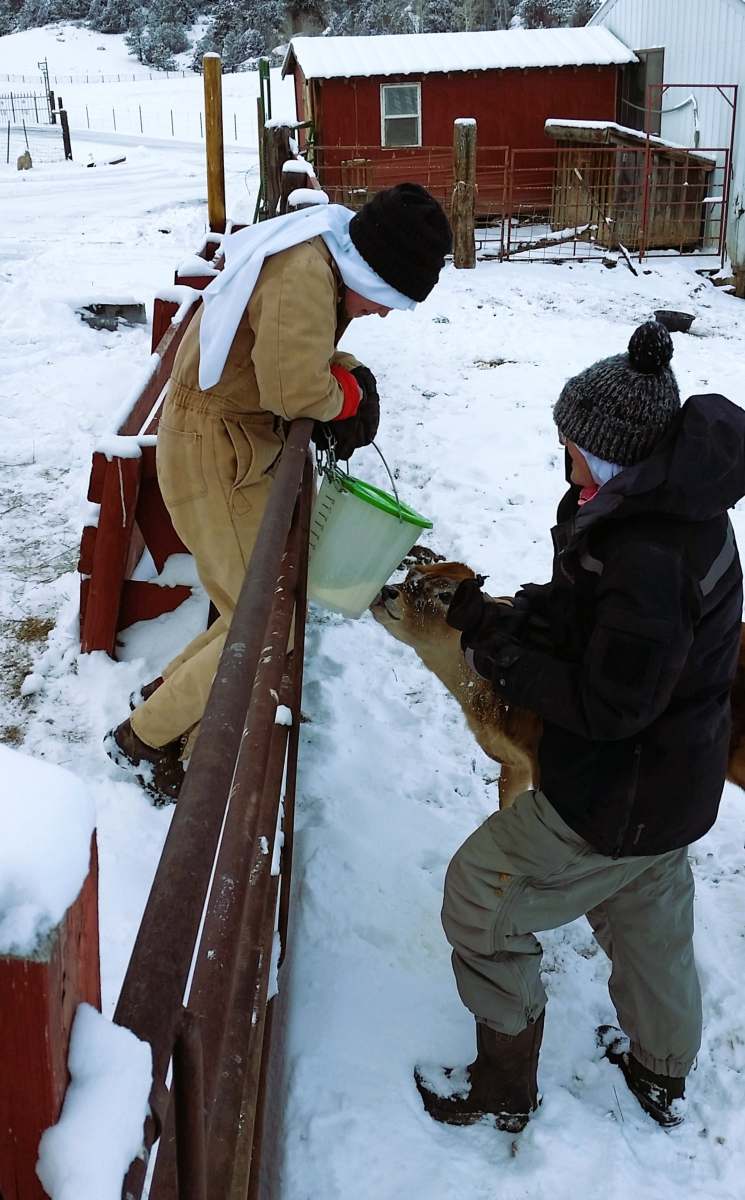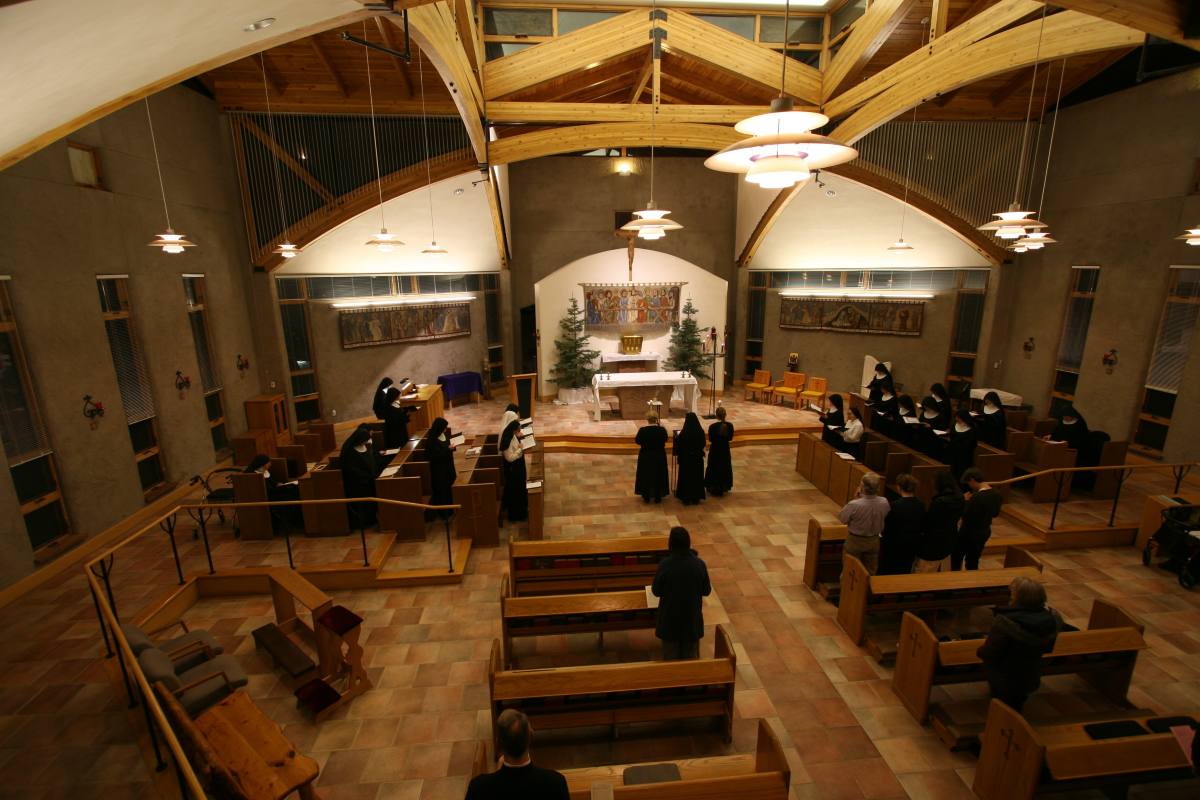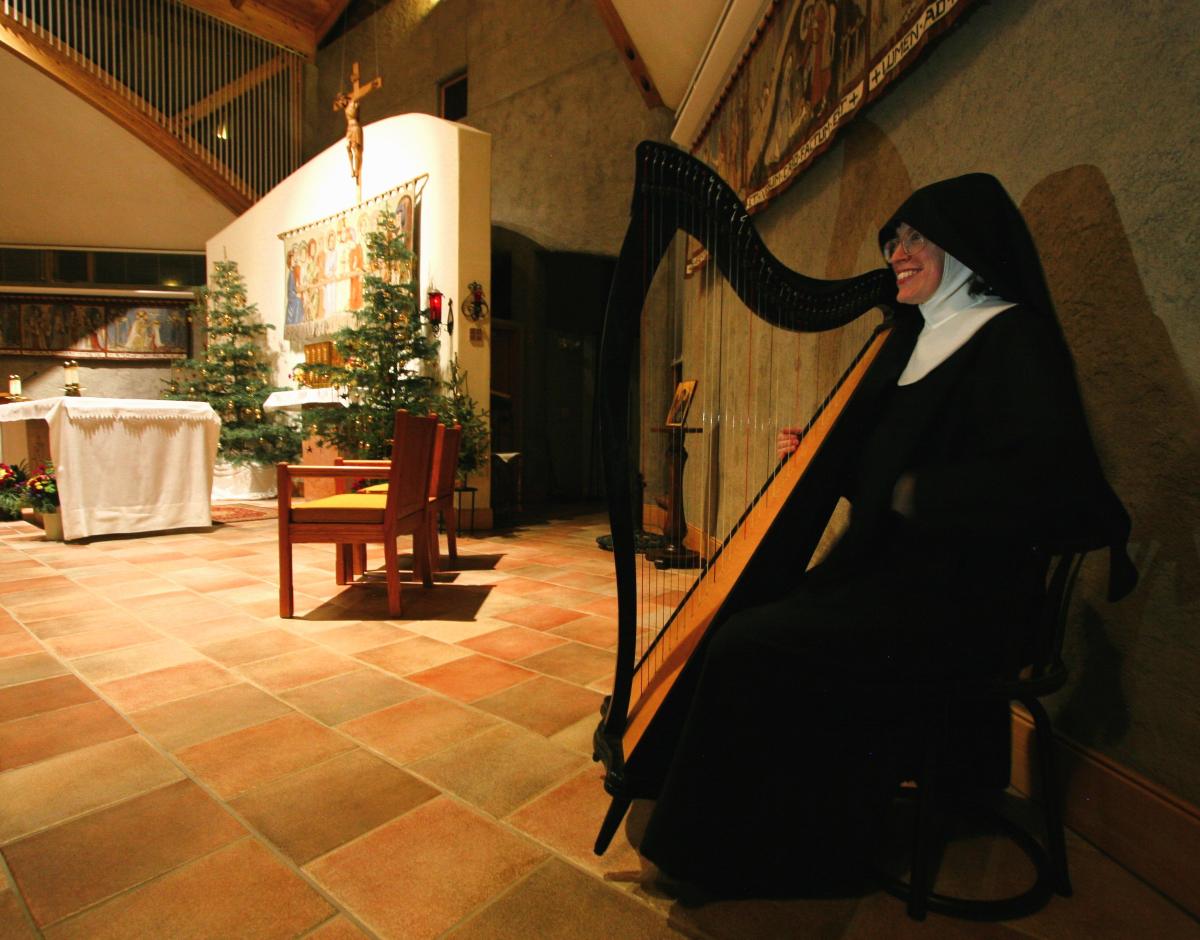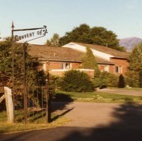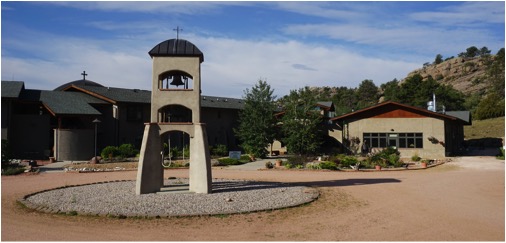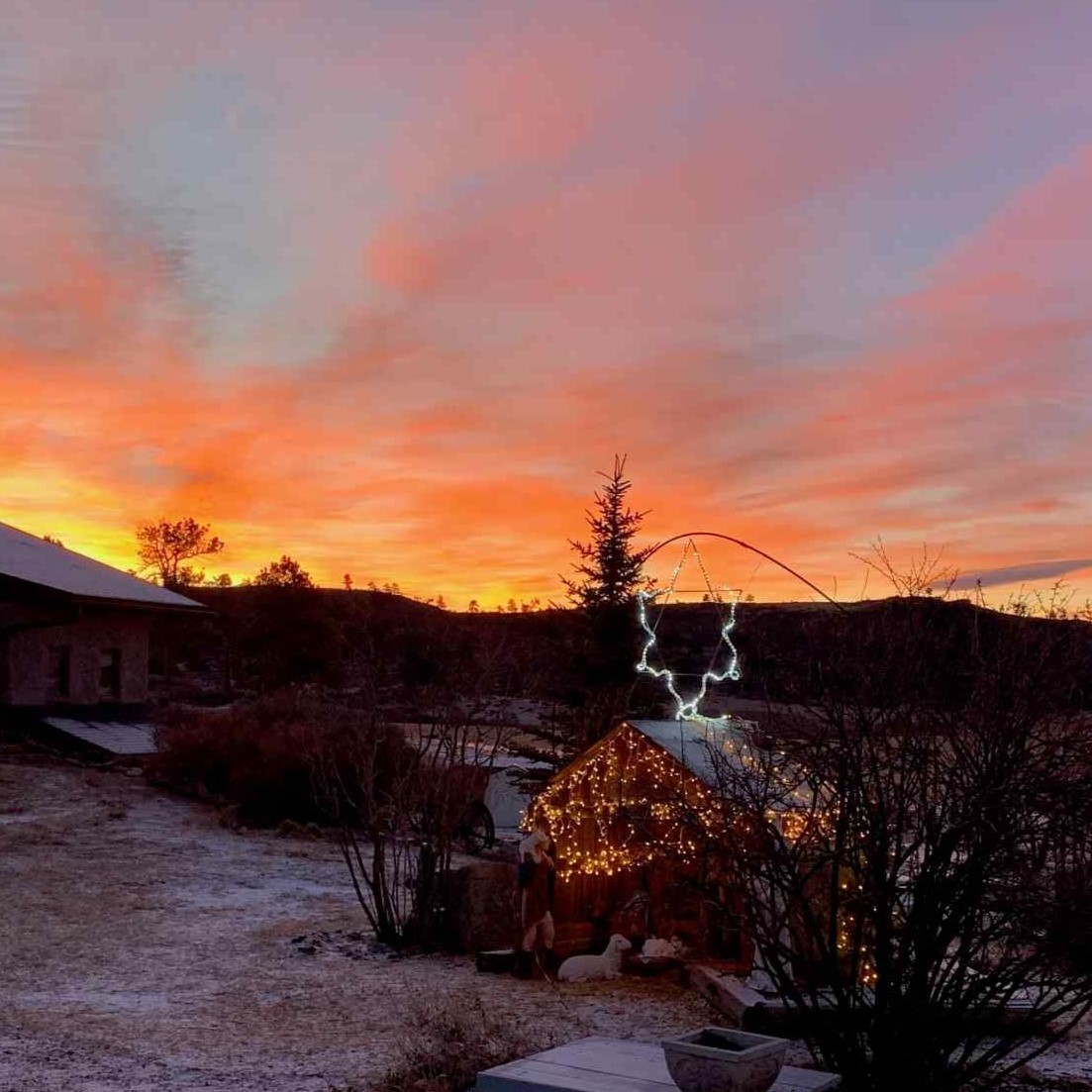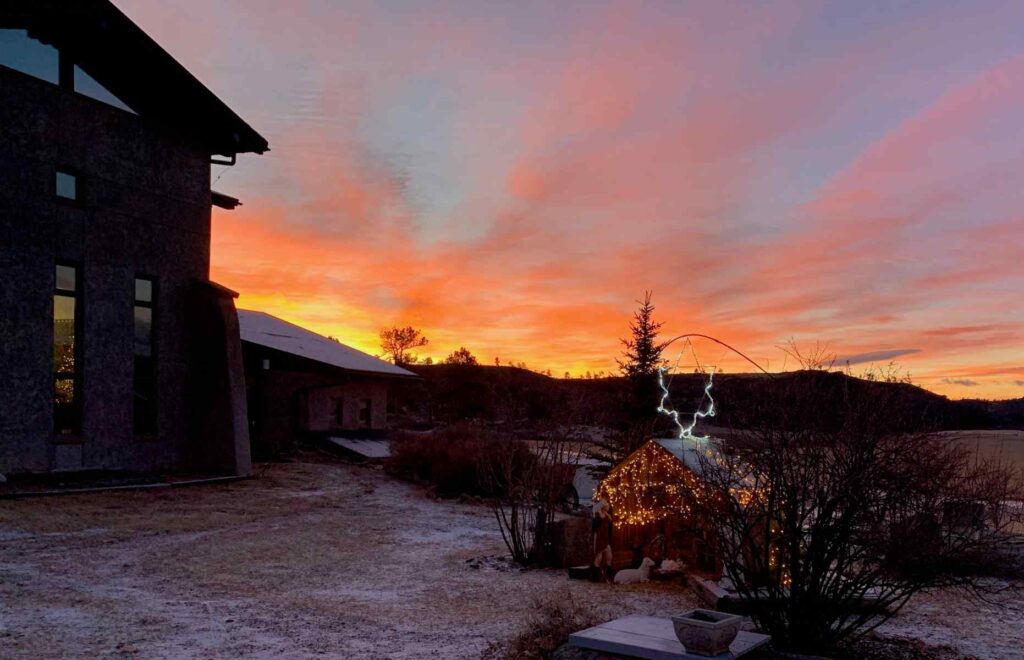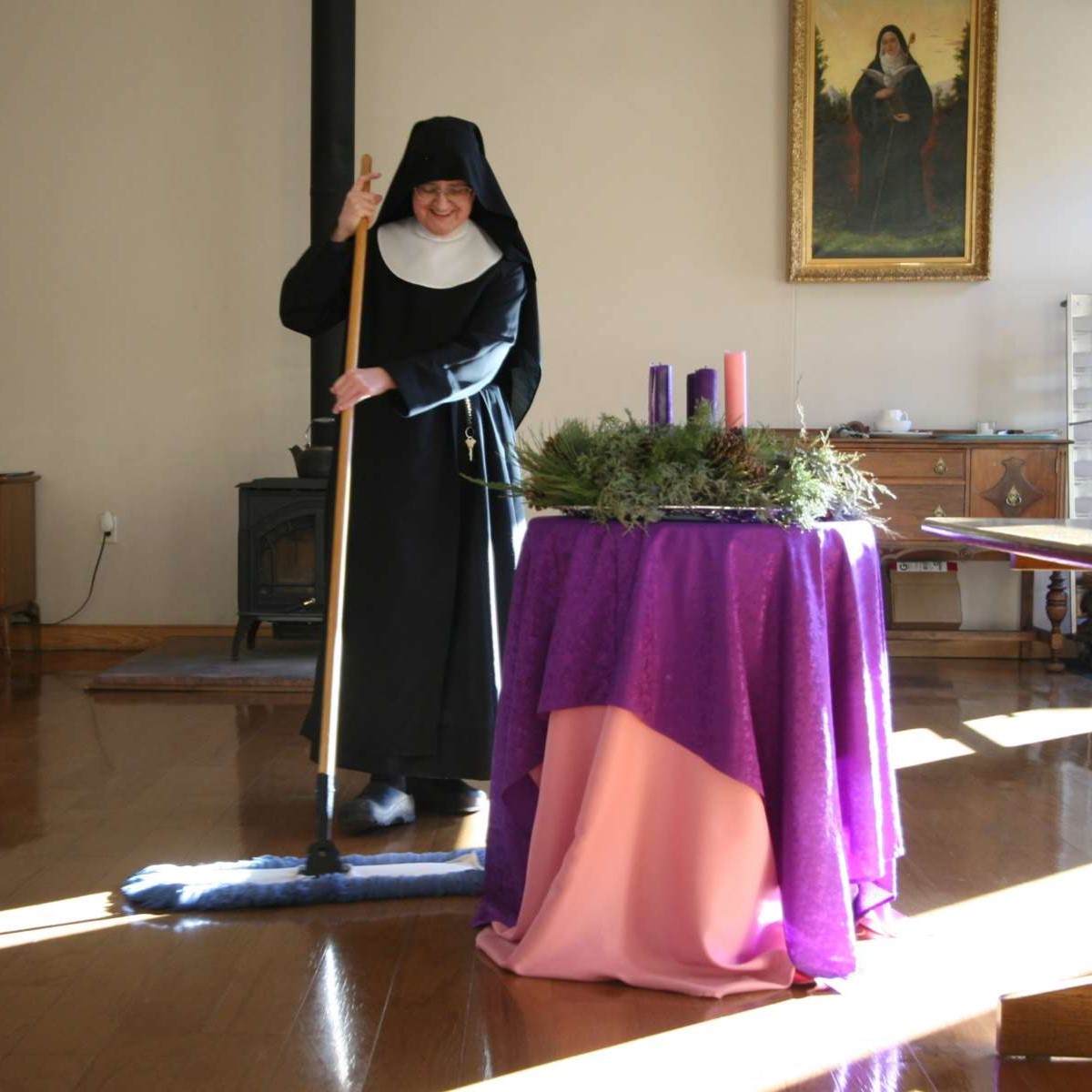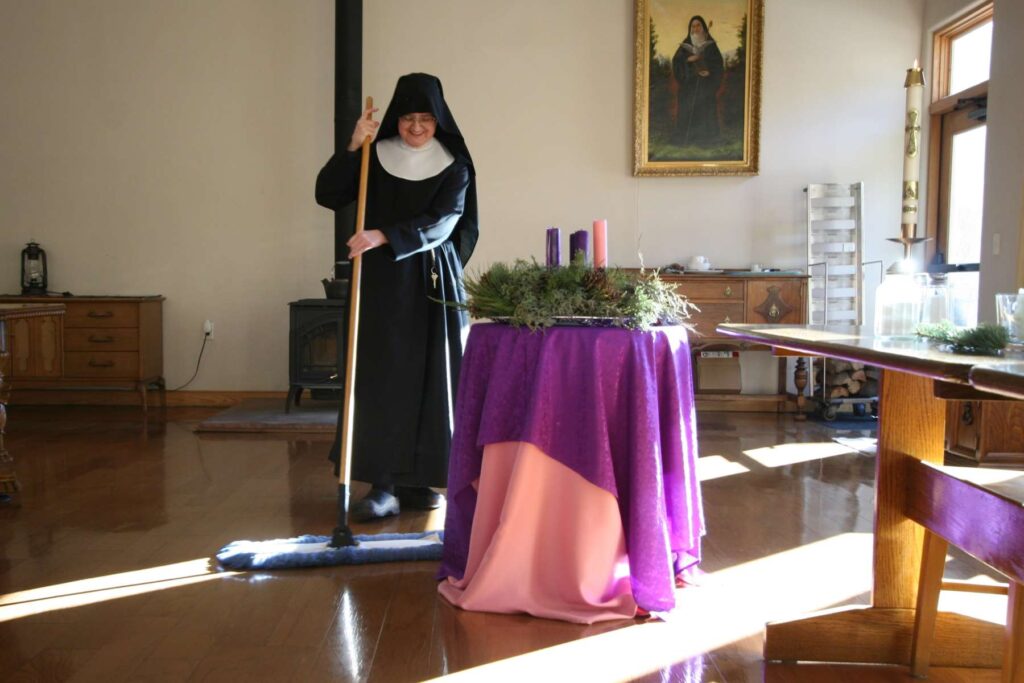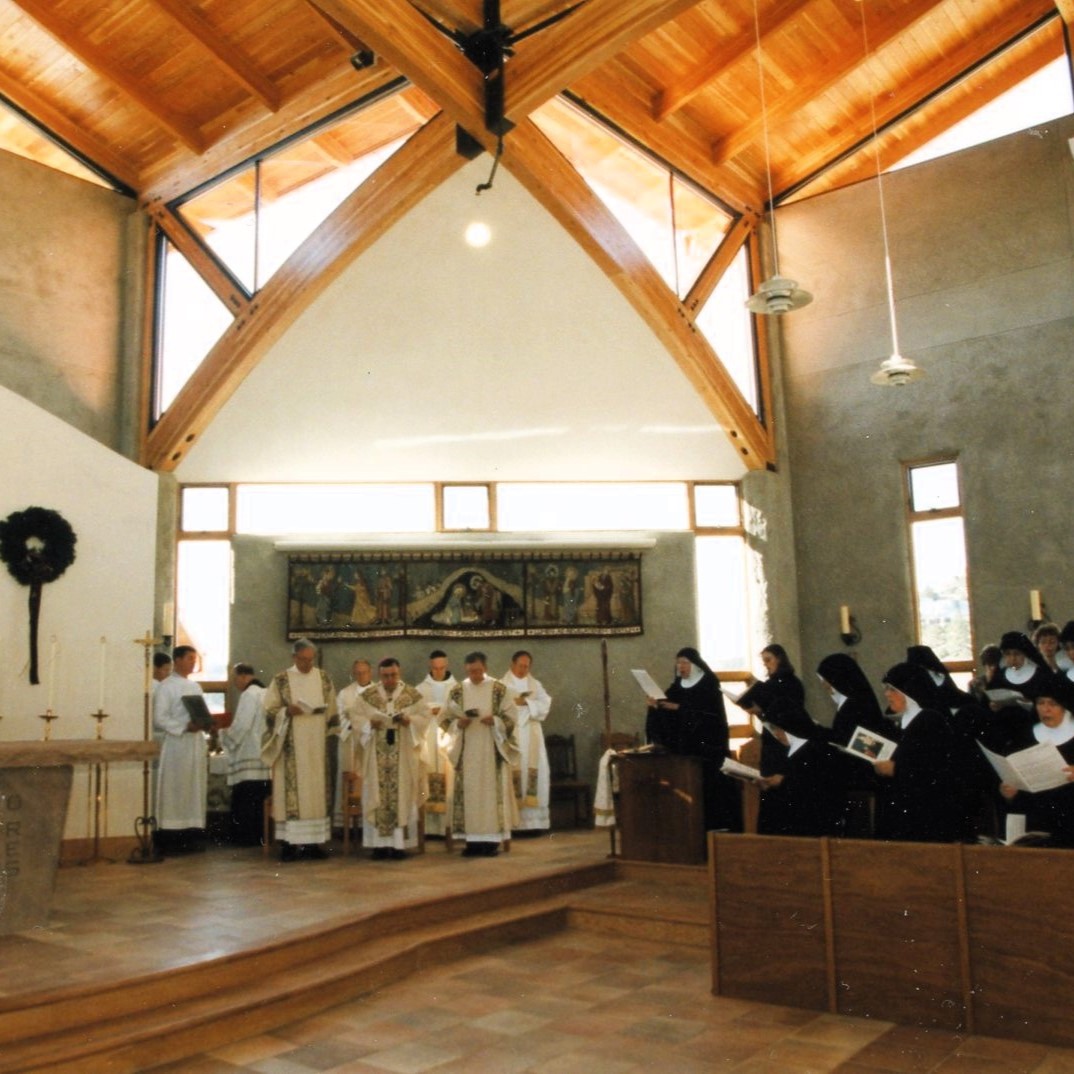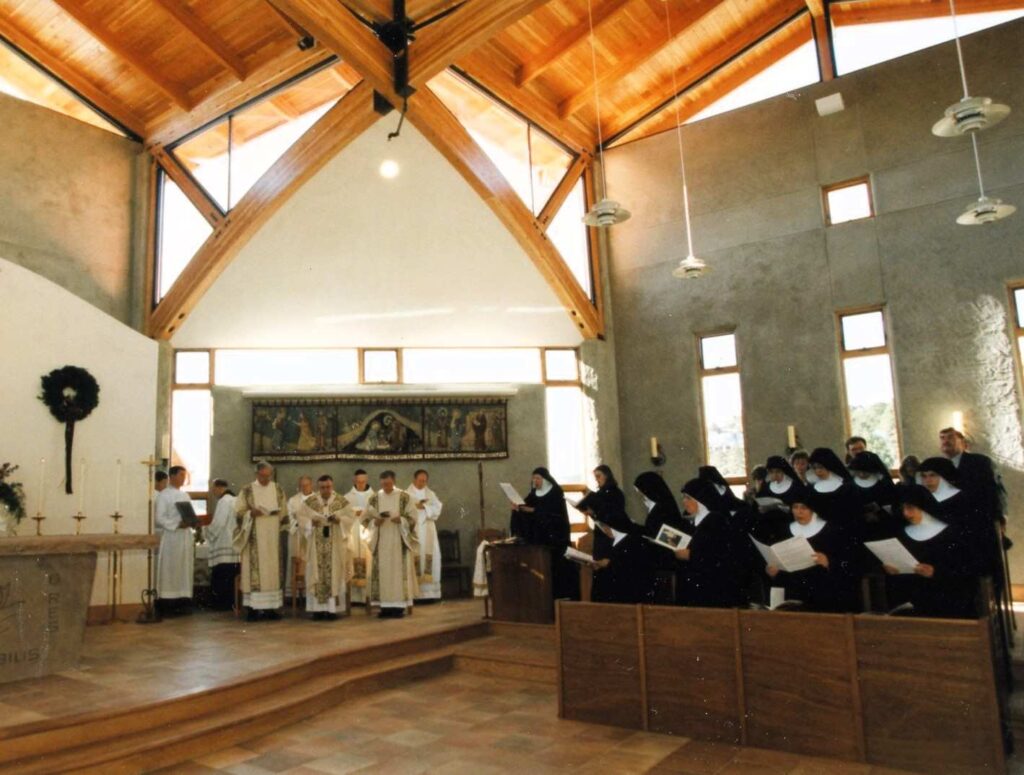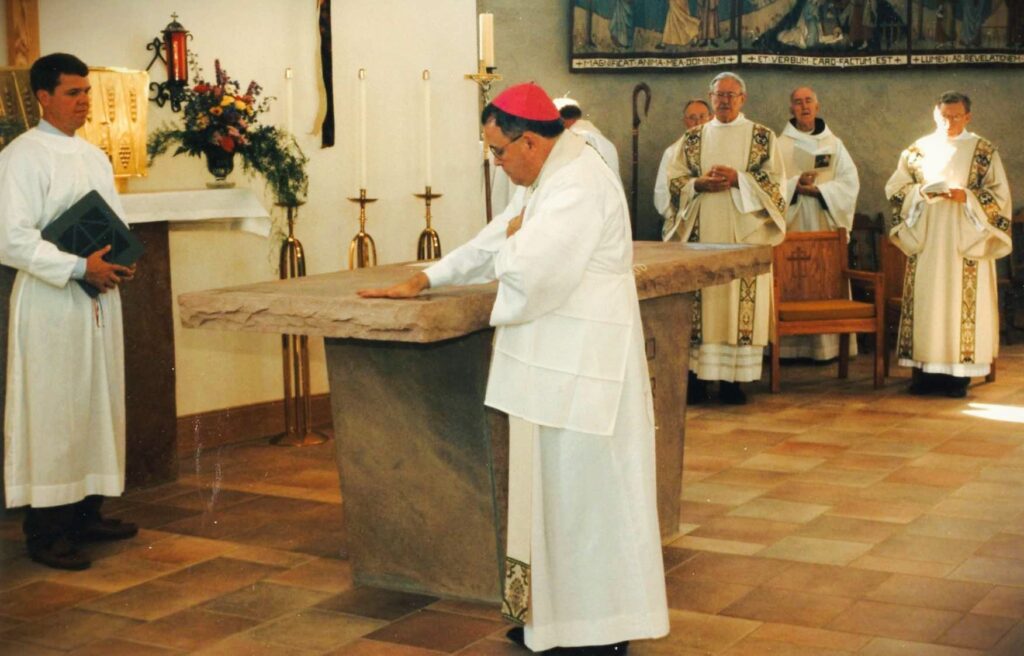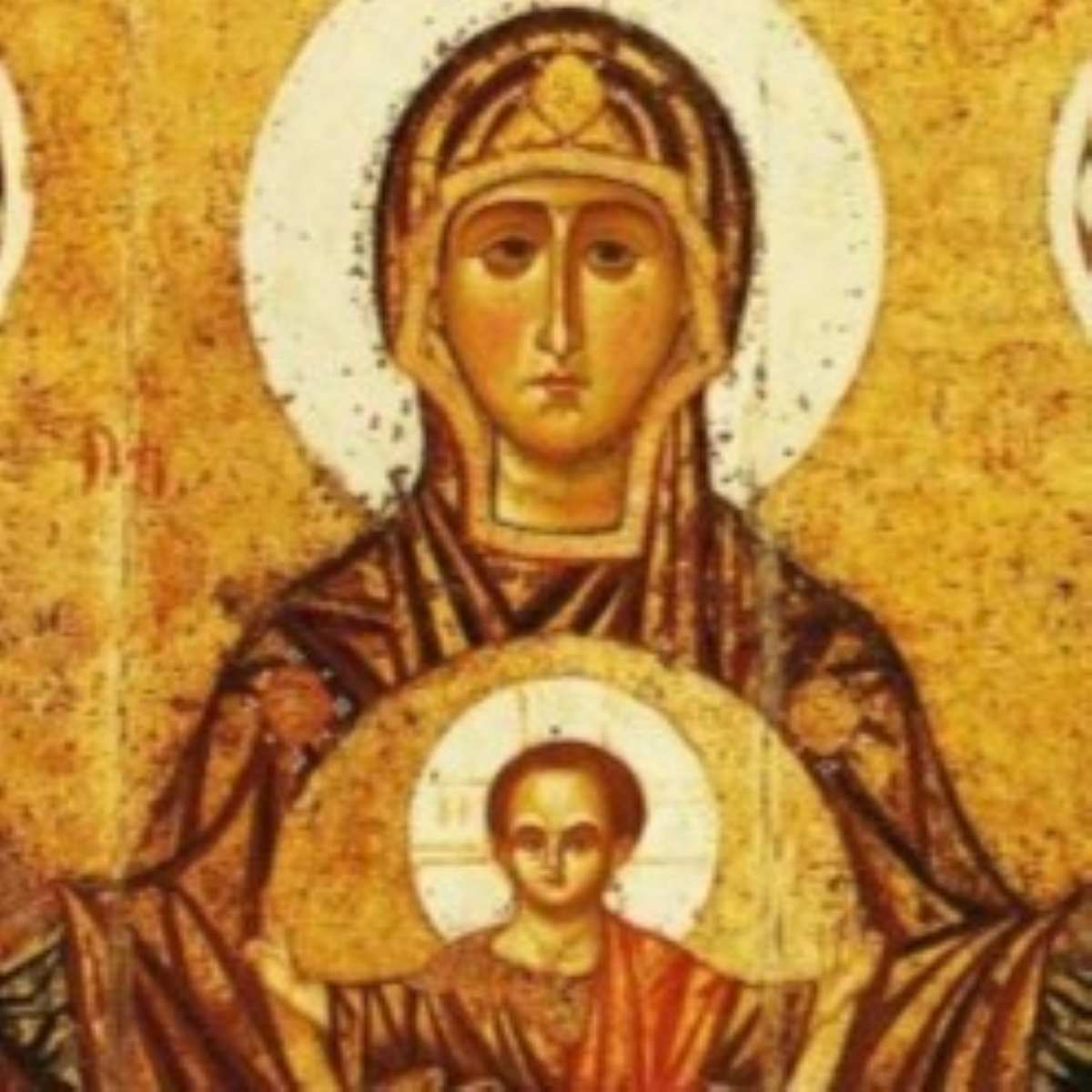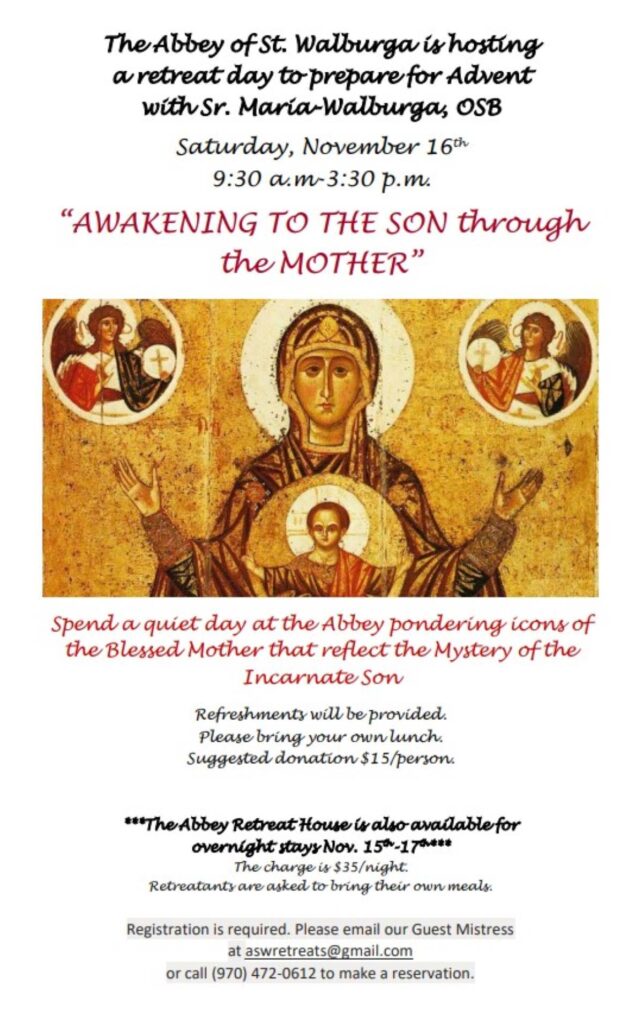A reflection by our Abbess, Mother Maria-Michael Newe, OSB
The Dedication of our Abbey Church, November 7, 1999
Twenty-five years have slipped by since our Chapel was completed. The most important parts of our lives take place in this sacred place. It is here we begin by knocking on the door at our entrance, and here we say our final “good-bye” to our beloved Sisters.
Chapter 19 of the Rule of St. Benedict talks about how we should say the Divine Office: “We must always remember, therefore, what the Prophet says: Serve the Lord with fear (Ps 2:11), and again, Sing praise wisely (Ps 46[47]:8); and, In the presence of the angels I will sing to you (Ps 137[138]:1). Let us consider, then, how we ought to behave in the presence of God and his angels, and let us stand to sing the psalms in such a way that our minds are in harmony with our voices” (RB 19:3-5). I love that. We are assisting the angels! And we have to work that our mind might be in harmony with our voices. We know what a work of love that is. There is no work to be preferred to this, and we should celebrate the Divine Office with joy and solemnity.
“I rejoiced when I heard them say, ‘let us go to the house of the Lord’” (Ps 122:1). We have access at all times to the Chapel. So we have a reason to rejoice! In this place, our souls come to rest in the very Presence of Jesus Christ Our Lord…And the Holy Spirit fills our hearts with the conversations…What a gift.
It is in this Chapel that we give the best of ourselves. In Psalm 37 we hear, “Once I was young, and now I am old…” (Ps 37:25). Our Chapel watches the passage of time. Our bodies age, but our souls only get richer. You can feel that. There is a certain dignity that starts growing in you. There is no fear in ageing, because there is something beautiful happening within us.
Our Chapel is dedicated to the Mother of God. The tapestries, which hang along the walls, tell the story of the Blessed Mother’s life. Her most important moments are in the Chapel as well, and are united with ours. We have her motherly intercession and her powerful intercession. Nothing goes unnoticed by her. And the wonderful thing is that she cares.
So let us celebrate with heartfelt gratitude and joy this day. Every day, we receive the Body and Blood of Our Lord Jesus Christ in this Chapel. Who could want more? Twenty-five years ago this Abbey Church was dedicated (and believe me, that altar received a ton of oil; I remember the Archbishop spreading the oil all over with great delight…all of the corners, Monsignor Newman and Deacon Bud, they went around to all of the crosses in the Church and put oil on them while we prayed). May it bear our hearts and souls to the heights of the heavens. Let us sing with our minds and hearts in harmony, that this day of great blessings will see a showering of graces that we pray shall never end. This is God’s dwelling place, and He has made it holy. We call on His name, for scripture says: There, you will find Him.
As you sing, sing very purposefully. The measure you put in to it is the measure you are going to get out. There is something special in the liturgy for each person, and it is a jewel ready to be found—Find it and take care of it, because it will be given to no one else but you. May this bring us all to holiness.
Archbishop Chaput anointing the altar with oil
